President Biden’s Visit to Canada Strengthens Democratic Alliances and Promotes North American Manufacturing Growth
Washington, D.C. and Ottawa, Canada – The following is a joint statement from National Association of Manufacturers President and CEO Jay Timmons and Canadian Manufacturers & Exporters President and CEO Dennis Darby on the occasion of the first official visit of U.S. President Joe Biden to Canada:
“The historic ties between Canada and the United States have created one of the strongest bilateral partnerships of any two countries in the world. As neighbors, friends and as manufacturers, we have always worked together to support our industry and the millions of jobs it provides.
“President Biden’s visit to Canada is an opportunity for our two countries to rededicate ourselves to deepening these ties, to redoubling our efforts to grow North American manufacturing and to taking full advantage of the United States–Mexico–Canada Agreement.
“To achieve these goals, we must support regional integration, supply chain resilience and sustained economic growth, innovation and jobs. We must also continue to coordinate our efforts to address climate change, develop critical minerals and drive the clean energy transition, while also ensuring that manufacturers across our region have access to all forms of energy.
“As world events make abundantly clear, strengthening economic and strategic alliances between democracies is essential to our future and to countering those that want to undermine our way of life. At every opportunity, we must strengthen democracy and the free enterprise system in our countries and around the world.
“We must take on all these challenges, together, so that the manufacturing industry can continue to lead our economies forward and drive our countries’ continuing prosperity. As our history has proven time and again, when we work together, we accomplish big things and improve the quality of life for all.”
-NAM-
The National Association of Manufacturers is the largest manufacturing association in the United States, representing small and large manufacturers in every industrial sector and in all 50 states. Manufacturing employs nearly 13 million men and women, contributes $2.81 trillion to the U.S. economy annually and accounts for 55% of private-sector research and development. The NAM is the powerful voice of the manufacturing community and the leading advocate for a policy agenda that helps manufacturers compete in the global economy and create jobs across the United States. For more information about the NAM or to follow us on Twitter and Facebook, please visit www.nam.org.
-CANADIAN MANUFACTURERS & EXPORTERS (CME)-
From the first industrial boom in Canada, CME has advocated for and represented member interests. 150 years strong, CME has earned an extensive and effective track record of working for and with 2,500 leading companies nationwide. More than 85 per cent of CME’s members are SMEs and collectively account for an estimated 82 per cent of total manufacturing production and 90 per cent of Canada’s exports.
The NAM Talks Democracy, IP and Trade in Geneva
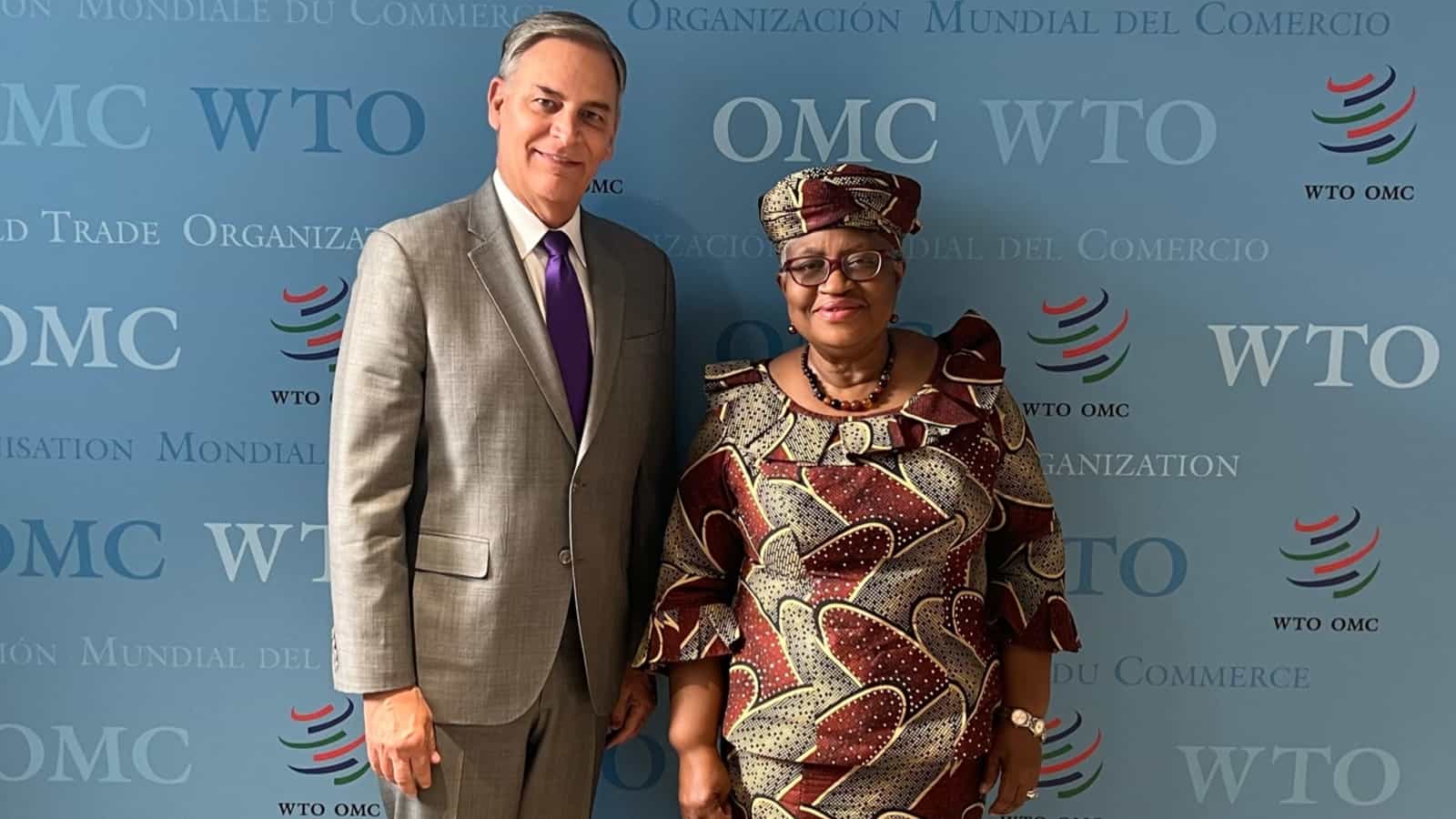
On the first two days of the NAM’s Competing to Win Tour in Europe, Timmons took part in “frank and engaging” discussions with global leaders in Geneva. The conversations focused on reinforcing transatlantic partnerships, bolstering democracy, addressing trade challenges and emphasizing the crucial role manufacturers play in promoting global stability.
The details: Timmons met with influential figures including WTO Director-General Dr. Ngozi Okonjo-Iweala, WTO Deputy Director General Angela Ellard, U.S. Ambassador to Switzerland and Lichtenstein Scott Miller and U.S. Deputy Chief of Mission in Geneva David Bisbee.
- NAM representatives also participated in an event on intellectual property co-hosted by the NAM and the International Federation of Pharmaceutical Manufacturers and Associations.
The substance: In the meetings, Timmons delved into the negative impact of the WTO/TRIPS waiver expansion, the need to restore the WTO dispute settlement system’s functionality and the crucial role of manufacturers in supporting democracies and global institutions.
- ‘“Frank & engaging discussion w/ @JayTimmonsNAM CEO of the US National Association of Manufacturers & his delegation. Focused on geopolitical tensions & impact of @wto, challenges w/ the TRIPS waiver extension to therapeutics & diagnostics, dispute settlement system & road to #MC13 [the WTO’s next ministerial conference in early 2024],” tweeted Okonjo-Iweala following the meeting.
Speech in brief: At the IFPMA event, first covered by Politico, Timmons stressed the significance of IP protections in driving innovation and developing new treatments, reinforcing the NAM’s opposition to an expansion of the TRIPS waiver to cover diagnostics and therapeutics. Attendees included Geneva-based government delegations, the WTO secretariat and NAM member companies.
- “In America, our industry works to advance the values of free enterprise, competitiveness, individual liberty and equal opportunity—the values that keep our industry strong,” said Timmons. “But increasingly, we find these values, which so many of us share, under attack—in particular from authoritarian regimes that have little regard for free markets and little respect for an individual’s right to determine their own destiny. That’s why our transatlantic relationship matters more than at any time in recent memory.”
- “[O]ne of the most important ingredients for innovation is how a country protects intellectual property. IP enshrines the understanding that years or even decades of hard work and sleepless nights, millions and millions of dollars and so much more will be rewarded,” he continued.
- “Expanding this [WTO/TRIPS waiver of IP] would set a precedent that would spiral across the manufacturing sector,” he concluded. “Some voices—here in Geneva and around the world—are already expressing desires to implement similar waivers for renewable and green energy technologies, or to automatically trigger an IP waiver for any future pandemic. If we don’t draw the line now, the outcome is obvious: an anti-innovation domino effect that destroys jobs, livelihoods and lifechanging products.”
The big picture: More than a worldwide center for diplomacy, Switzerland is the seventh largest investor in the U.S. Timmons’s visit comes at a critical inflection point for the country and amid heightened stresses on global institutions, due to COVID-19, Russia’s unprovoked war in Ukraine and competition with China, among other geopolitical challenges.
News coverage: Politico’s Morning Trade newsletter spotlighted Timmons’s trip, while The Wall Street Journal (subscription) quoted him on the importance of new U.S. trade agreements.
Next up: The tour will continue in Frankfurt, Germany, where the NAM will further demonstrate manufacturers’ leadership and the potential for a more robust transatlantic alliance.
Senators Reintroduce Crucial R&D Bill
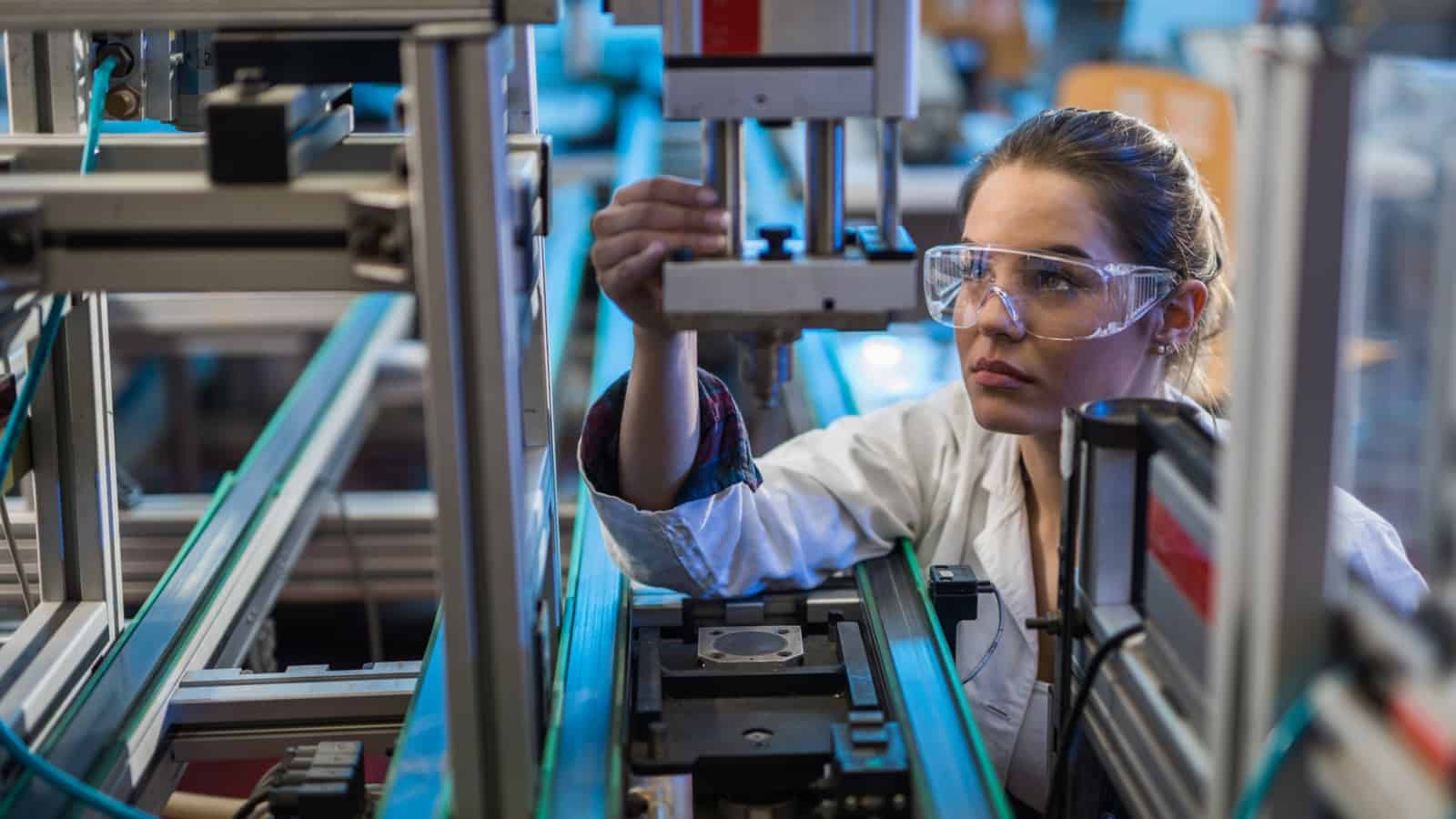
A bipartisan Senate duo introduced legislation on Thursday that would both allow businesses to once again fully deduct R&D expenses in the year they are made and expand the refundable R&D tax credit.
What’s going on: The American Innovation and Jobs Act, sponsored by Sens. Maggie Hassan (D-NH) and Todd Young (R-IN), would restore the immediate deductibility of R&D expenses. Last year, a tax change went into effect requiring companies to amortize or deduct their R&D investments over a period of years, making R&D more costly.
Why it’s important: According to a recent NAM analysis, the sector would lose nearly 60,000 jobs and face an output decline of more than $31 billion this year alone if the change is not reversed.
- The U.S. has now become a global outlier, joining Belgium as the only other developed country requiring the amortization of R&D expenses.
- Meanwhile, China provides a 200% “super deduction”—20 times the amount allowed in the U.S. tax code—for its manufacturers’ research.
The NAM says: “Manufacturers applaud the introduction of the American Innovation and Jobs Act, which will help the U.S. out-compete China,” said NAM Managing Vice President of Tax and Domestic Economic Policy Chris Netram.
- “Across the country, manufacturers are hiring workers, investing in communities and creating the products, materials and processes that drive us forward. Congress should approve the American Innovation and Jobs Act quickly to support critical research that allows manufacturers to improve lives in America and for people around the world.”
Learn more: Read our stories on how the 2022 expensing requirement is impacting International Paper, Marlin Steel Wire Products, Ultragenyx, Miltec UV and Brewer Science (whose story was also covered today by The Wall Street Journal, subscription).
NAM Goes to Europe to Strengthen Partnerships
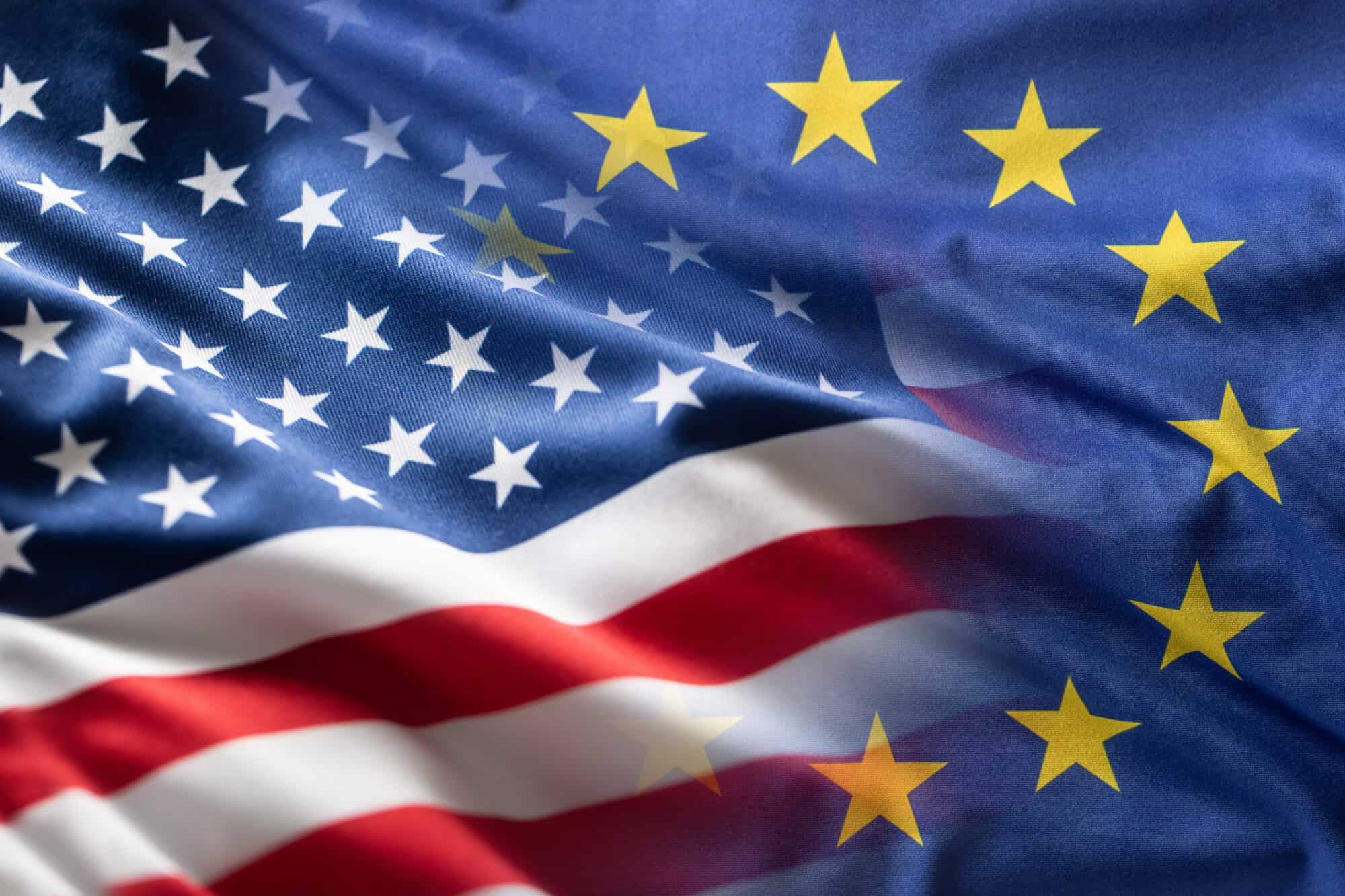
Ukrainian President Volodymyr Zelenskyy’s speech at the recent NAM board meeting highlighted the importance of manufacturers in the U.S. to the world at large. But it also made another, implicit point—that the NAM has a robust platform for engaging global leaders on issues critical to the industry.
NAM President and CEO Jay Timmons heads across the Atlantic next week to bolster these strategic alliances, as well as advance key competitiveness priorities and elevate manufacturers’ role as the “Arsenal of Democracy.” While there, he will affirm the values shared by Americans and Europeans alike, including free enterprise, competitiveness, individual liberty and equal opportunity.
The itinerary: The trip will take Timmons to Switzerland, Germany, Poland, Belgium, France and the United Kingdom, during a critical inflection point for U.S.–European Union and U.S.–U.K. partnerships.
- Timmons will take part in high-level meetings with government officials, international intergovernmental organizations like the World Trade Organization, U.S. embassies and European trade association counterparts.
- He will also meet with global manufacturing leaders, visit sites vital to the U.S.–European alliance and draw attention to the support manufacturers are providing in key countries like Poland.
The trade theme: Ahead of this trip, Timmons recently urged President Biden to resume forging trade agreements with our international partners, both in Europe and around the globe.
- As Timmons put it, “By advancing an ambitious trade agreement agenda, we can ensure that the U.S.—and not competitors like China—writes the rules for the global economy and trading system.”
- “At a time when democracy and free enterprise are under attack from forces around the world, America, as it has done in decades past, can provide the leadership needed to defend our values, our institutions and our way of life.”
The bigger picture: Timmons’ Europe trip follows many other NAM efforts to engage with international partners, which include recent meetings with Danny McCoy, CEO of the Irish Business Employers Confederation, and Goldy Hyder, president and CEO of the Business Council of Canada.
- It also follows Timmons’ trip to Mexico as a part of the U.S.–Mexico–Canada business delegation meetings at the North American Leaders’ Summit.
- Among other key moments, he communicated directly to new Mexican Economy Minister Raquel Buenrostro the myriad of regulatory and trade policies that violate the spirit, if not the letter, of the United States–Mexico–Canada Agreement.
The last word: “The NAM’s competitiveness agenda isn’t just something we can achieve here at home,” said NAM Executive Vice President Erin Streeter.
- “It requires action and partnership abroad, particularly in Europe. Russia’s aggression in Ukraine and COVID-19 are just two examples of why the resilience and strength of the transatlantic alliance is so important.”
- “We’re looking forward to the impact we’ll make for manufacturers in the U.S. and in defense of our shared values.”
Sens. Hassan and Young Reintroduce Crucial R&D Legislation
American Innovation and Jobs Act will ensure that the tax code supports the ability of manufacturers to out-compete China and create well-paying jobs
Washington, D.C. – Following the introduction of the American Innovation and Jobs Act by Sens. Maggie Hassan (D-NH) and Todd Young (R-IN), National Association of Manufacturers Managing Vice President of Tax and Domestic Economic Policy Chris Netram released the following statement:
“Manufacturers are hiring workers, investing in communities across the United States and creating the products, materials and processes that drive America forward. Manufacturers applaud the introduction of the bipartisan American Innovation and Jobs Act, which restores full deductions for research, helping the American industry out-compete China, which provides a 200% super deduction for manufacturers’ research—20 times the amount in the U.S. tax code,” said Netram. “Manufacturers, the vast majority of which are quite small, perform 55% of private-sector research and development. These investments in innovation spur economic growth and support the creation of high-paying jobs across the country. Congress should approve the American Innovation and Jobs Act quickly to support critical research that allows manufacturers to improve lives in America and for people around the world.”
Background: As of 2022, manufacturers can no longer immediately deduct their R&D expenses in the year in which they are incurred. Instead, manufacturers must deduct or amortize their expenses over a number of years, which makes R&D much more expensive to undertake. The American Innovation and Jobs Act would restore the immediate deductibility of R&D expenses, a policy that was in place for nearly 70 years. In the 117th Congress, the American Innovation and Jobs Act garnered 35 cosponsors: 17 Democrats and 18 Republicans. A recent analysis released by the NAM finds that the industry would lose 59,392 jobs and face a decline in output of $31.69 billion this year if Congress does not act.
-NAM-
The National Association of Manufacturers is the largest manufacturing association in the United States, representing small and large manufacturers in every industrial sector and in all 50 states. Manufacturing employs nearly 13 million men and women, contributes $2.81 trillion to the U.S. economy annually and accounts for 55% of private-sector research and development. The NAM is the powerful voice of the manufacturing community and the leading advocate for a policy agenda that helps manufacturers compete in the global economy and create jobs across the United States. For more information about the NAM or to follow us on Twitter and Facebook, please visit www.nam.org.
EPA Proposes PFAS Standards
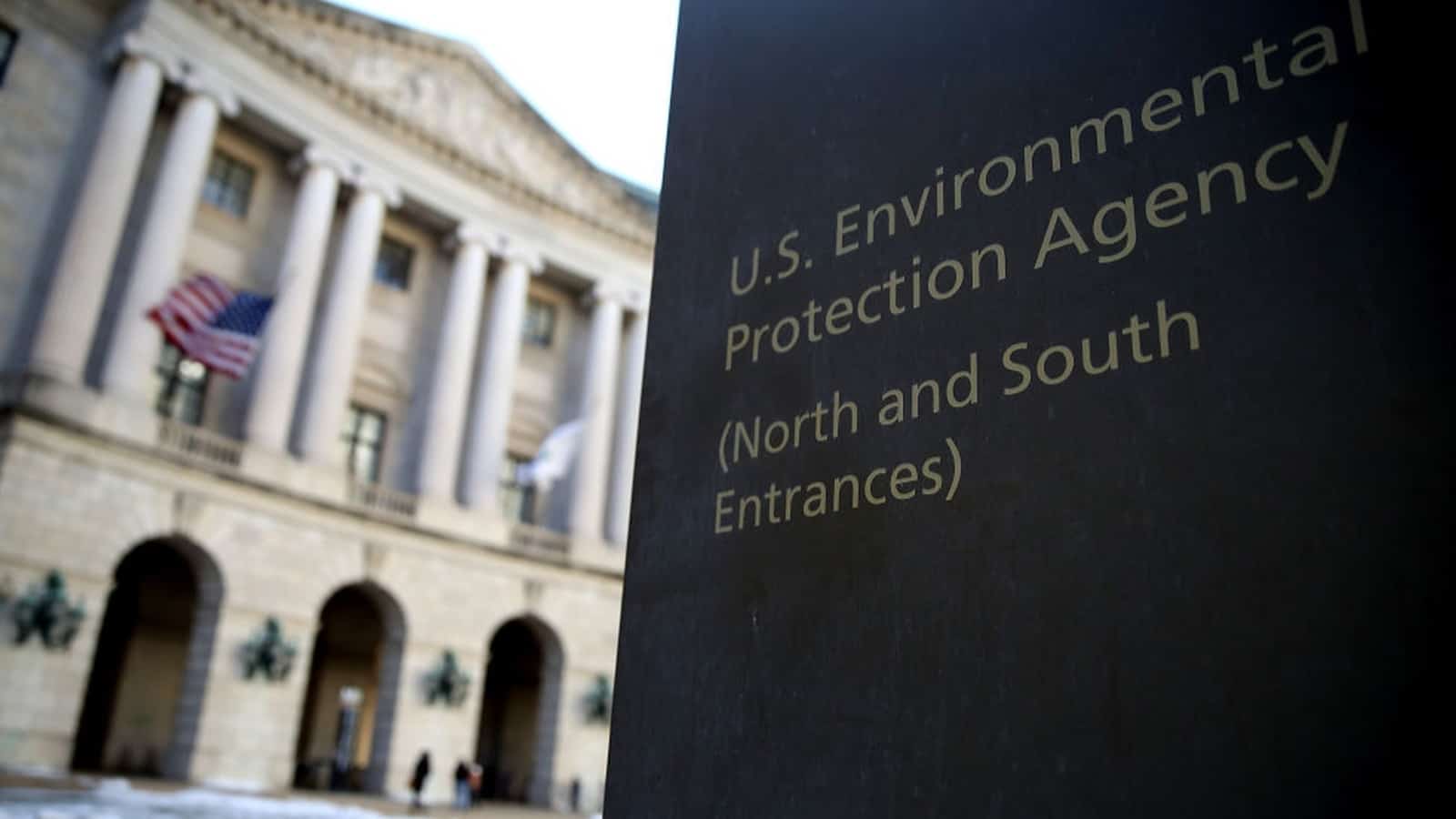
The Environmental Protection Agency has proposed the first federal limits on two chemical compounds that were used widely in everyday products for decades, The Wall Street Journal (subscription) reports.
What’s going on: “The agency is proposing maximum allowable levels in the nation’s public drinking-water systems for two compounds in a class of chemicals known as perfluoroalkyl and polyfluoroalkyl substances, or PFAS, which were used for decades in carpeting, clothing, food packaging, firefighting foam and other consumer and industrial products. The EPA also said it would regulate four other PFAS chemicals by requiring treatment if the combined level reaches a certain concentration.”
- The suggested limits under the Safe Drinking Water Act are part of a larger move by the EPA to tighten rules around “forever chemicals”—so known because they take years to break down—owing to “a growing number of studies [that] have shown links to a variety of cancers, thyroid disease, high cholesterol and other issues.”
- The two individual chemicals under discussion are known as PFOA and PFOS, which various industries began using in the 1940s for their ability to resist grease, corrosion, water and stains, as well as to douse fires.
Why it’s important: While the EPA says the change would prevent numerous deaths and illnesses, not everyone is assured of the soundness of the science behind it—and others say it would cost companies unnecessarily.
- Critics of the new proposed standard say the chemicals are still necessary components of numerous products, from cell phones to medical devices, and there are no viable alternatives. Moreover, when used correctly, PFAS compounds do not pose a significant health risk to humans or the environment, they say.
- One source told the Journal the new limits “would cost water systems $40 billion” in compliance-related spending.
Our take: “Everyone deserves access to clean drinking water, and manufacturers continue to do their part to ensure we achieve the highest levels of environmental stewardship,” said NAM Director of Energy and Resources Policy Chris Morris.
- “Manufacturers in America are committed to the communities in which they live and serve and are dedicated to protecting the health, safety and vibrancy of those communities. The EPA’s proposal leaves many questions unanswered on the feasibility of meeting these new standards and the economic impacts this will have on communities, especially rural communities and consumers. The NAM looks forward to continuing to work with the EPA to ensure everyone has access to clean drinking water.”
Arctic Drilling Gets the Go-Ahead

The Biden administration has given its approval of the Willow oil-drilling project in Alaska, reports The Wall Street Journal (subscription).
The gist: “The green light means Houston-based ConocoPhillips can start construction on its roughly $7 billion project in Alaska’s National Petroleum Reserve, which the company expects will produce about 180,000 barrels of oil a day at its peak—equivalent to about 40% of Alaska’s current crude production.”
- “The Interior Department said it would allow drilling on three of the five drill sites proposed by ConocoPhillips, which announced the Willow discovery in 2017.”
The NAM’s take: The NAM expressed its support of the project to the administration last summer, pointing out that while manufacturers make full use of renewable energy sources, they also need oil and gas.
- “Manufacturers know that we must continue developing reliable sources of American energy and can do that in a way that still allows us to achieve critical environmental goals,” said NAM President and CEO Jay Timmons today.
- “The Willow project is one such opportunity, which is why we advocated for its approval. Projects like this strengthen manufacturing’s competitiveness and are essential to bolstering domestic supply chains and job creation.”
NAM in action: The NAM has long been a vocal supporter of enacting permitting reform and making way for large-scale energy and infrastructure projects. Below, you can watch Timmons discuss the importance of overhauling the system during his 2023 State of Manufacturing Address:
The last word: Timmons recently hammered home the need for reform in a message to several U.S. House committees, saying, “Some of the biggest obstacles preventing manufacturers—and therefore the entire American economy—from reaching our full potential are the permitting delays, red tape and complicated bureaucracy that have plagued us for decades.”
Timmons: We Have to Get Serious About Competing with China; The President’s Budget Does the Opposite
Washington, D.C. – National Association of Manufacturers President and CEO Jay Timmons released the following statement on President Biden’s fiscal 2024 budget plan:
“There is no escaping the fact that the tax increases in President Biden’s new budget proposal would reverse the recent significant growth we’ve achieved in American manufacturing jobs and investment.
“After the 2017 tax reform made rates more competitive, manufacturers kept their promises to raise wages and invest in their communities. In fact, 2018 was the best year for manufacturing job creation in the previous 21 years. And in the past two years, as we rebuilt from the pandemic, we’ve created more jobs in the sector than at any point since the Reagan administration. So it comes as a surprise that President Biden, who has vocally championed manufacturing growth in pushing successfully for infrastructure investment and the CHIPS and Science Act, wants to pursue policies that would undo our progress.
“We have to get serious about competing with China; the president’s budget does the opposite. This proposal further undermines manufacturing in America by failing to reverse tax policies that make it more difficult for our industry to perform research, while China currently employs a 200% super deduction on R&D for manufacturing. It’s also now more expensive to buy critical machinery and finance new investments. If these lapsed deductions aren’t reinstated, it will mean lost jobs, less innovation and fewer opportunities for our communities.
“As manufacturers work to lead our economy forward, we also remain committed to lowering health care costs through market-based solutions that deliver choice and flexibility. Unfortunately, this administration’s insistence on imposing drug pricing requirements is an abdication of free market principles that poses serious risks to the development of new treatments and therapies—the very type of innovation that saves lives in America and around the world.
“Manufacturers are committed to growing investment, jobs and wages here in America. We need our government leaders to share that commitment.”
Background: Read more about how these critical tax priorities impact manufacturers across the country here.
-NAM-
The National Association of Manufacturers is the largest manufacturing association in the United States, representing small and large manufacturers in every industrial sector and in all 50 states. Manufacturing employs nearly 13 million men and women, contributes $2.81 trillion to the U.S. economy annually and accounts for 55% of private-sector research and development. The NAM is the powerful voice of the manufacturing community and the leading advocate for a policy agenda that helps manufacturers compete in the global economy and create jobs across the United States. For more information about the NAM or to follow us on Twitter and Facebook, please visit www.nam.org.
How a Tax Change Could Set Back Cancer Treatment
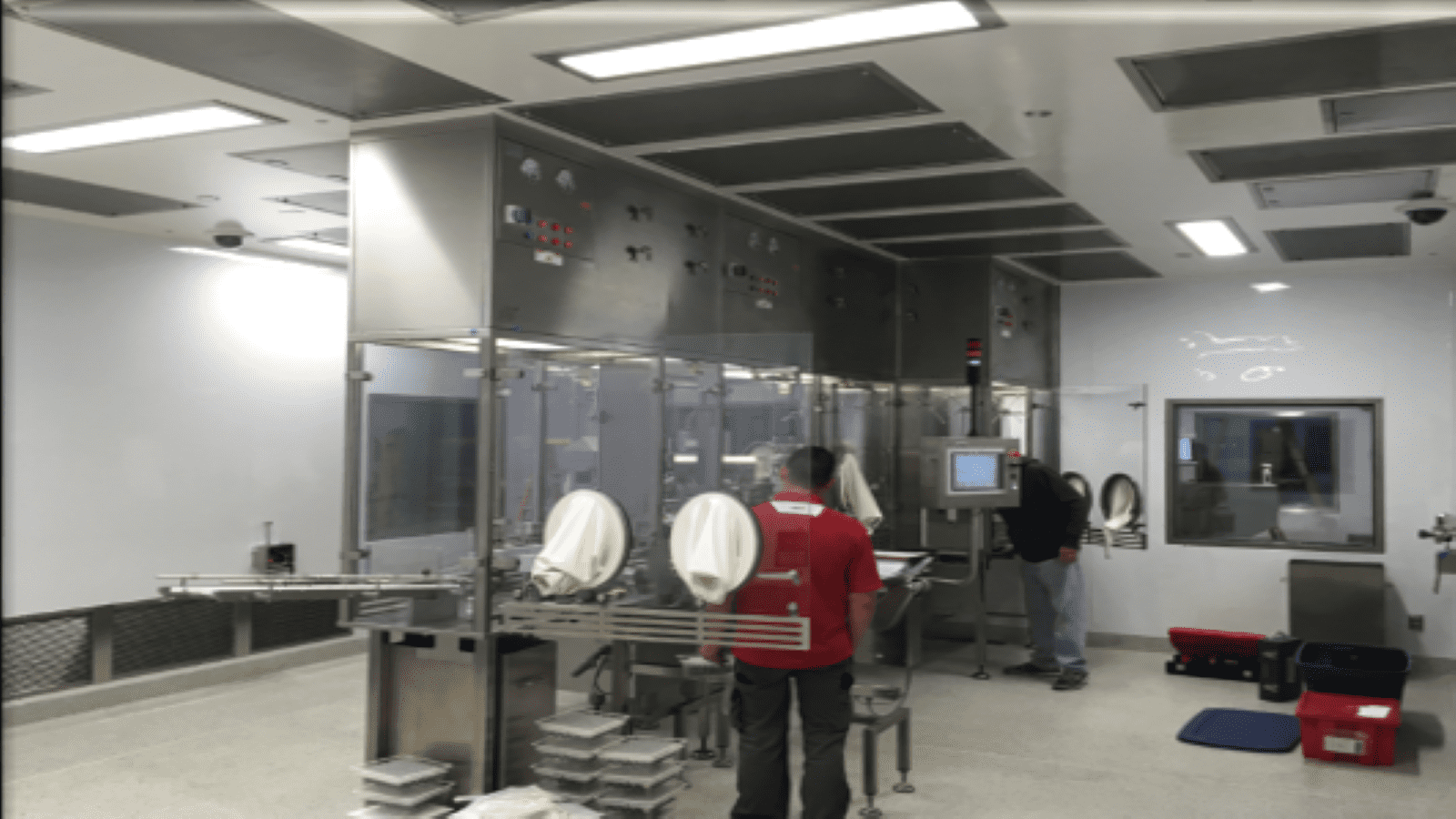
An idea becomes a prototype, then a treatment, then a lifesaver. That’s how R&D is supposed to work, but as Tolmar, Inc., can tell you, tax policy is a crucial element as well.
Tolmar spent years developing a therapy to improve the treatment of advanced prostate cancer. The resulting long-acting injectable, called ELIGARD®, works by stopping testosterone production to slow the growth of cancer cells. It’s a remarkable technology, now used by patients nationwide and around the world who are fighting advanced prostate cancer.
This innovation was facilitated by a U.S. tax policy that supported R&D investments by pharmaceutical companies. However, a recent change means that Tolmar and other pharmaceutical R&D units will find it more difficult to produce innovations that make human lives better, safer, healthier and longer.
The problem: Until about a year ago, businesses were able to deduct 100% of their R&D expenses in the year in which they incurred the expenses. Starting in 2022, however, a change in tax policy requires businesses to spread their R&D deductions out over a period of five years, making it more expensive to invest in innovation.
The cost for companies: “We have a finite amount of capital to put into the development of new products. The changes in tax policy will lead to difficult decisions,” said, Tolmar Chief Financial Officer Jeff Lederman.
- “We typically put the vast majority of our cash back into the company—whether that means investing in R&D, capital purchases or our workforce—and if we have less funding, we have to cut back in some or all of those areas. So, this policy change could have a significant impact on our organization.”
The cost to patients: This tax change could also have a negative impact on patients in the United States and around the world by delaying the development and availability of innovative new therapeutic products.
- Tolmar is one of a small number of U.S. manufacturers of long-acting injectable prostate cancer treatments, and the company has a number of other innovative medicines and therapeutics in its pipeline.
- “This is not so much about saving dollars; it’s about patient impact,” said Tolmar President and Chief Operating Officer Shawn Silvestri. “The results we’re chasing are meaningful to patients’ lives. If you’re looking for something that’s purpose-driven, that’s the kind of work we do—and that makes the choices for me that much more difficult.”
A competitive disadvantage: While the impact on patients is the most worrisome effect, the R&D tax change also has negative implications for American economic competitiveness.
- Making research more expensive puts companies that operate in the U.S., as Tolmar does, at a distinct disadvantage, especially when other countries are aggressively supporting domestic research.
Our move: At the NAM, we’re pushing Congress to reverse this change and allow manufacturers to keep investing in innovation, jobs and workers. Learn more and take action at www.nam.org/protect-innovation.
NAM Opposes FTC Ban on Noncompete Agreements
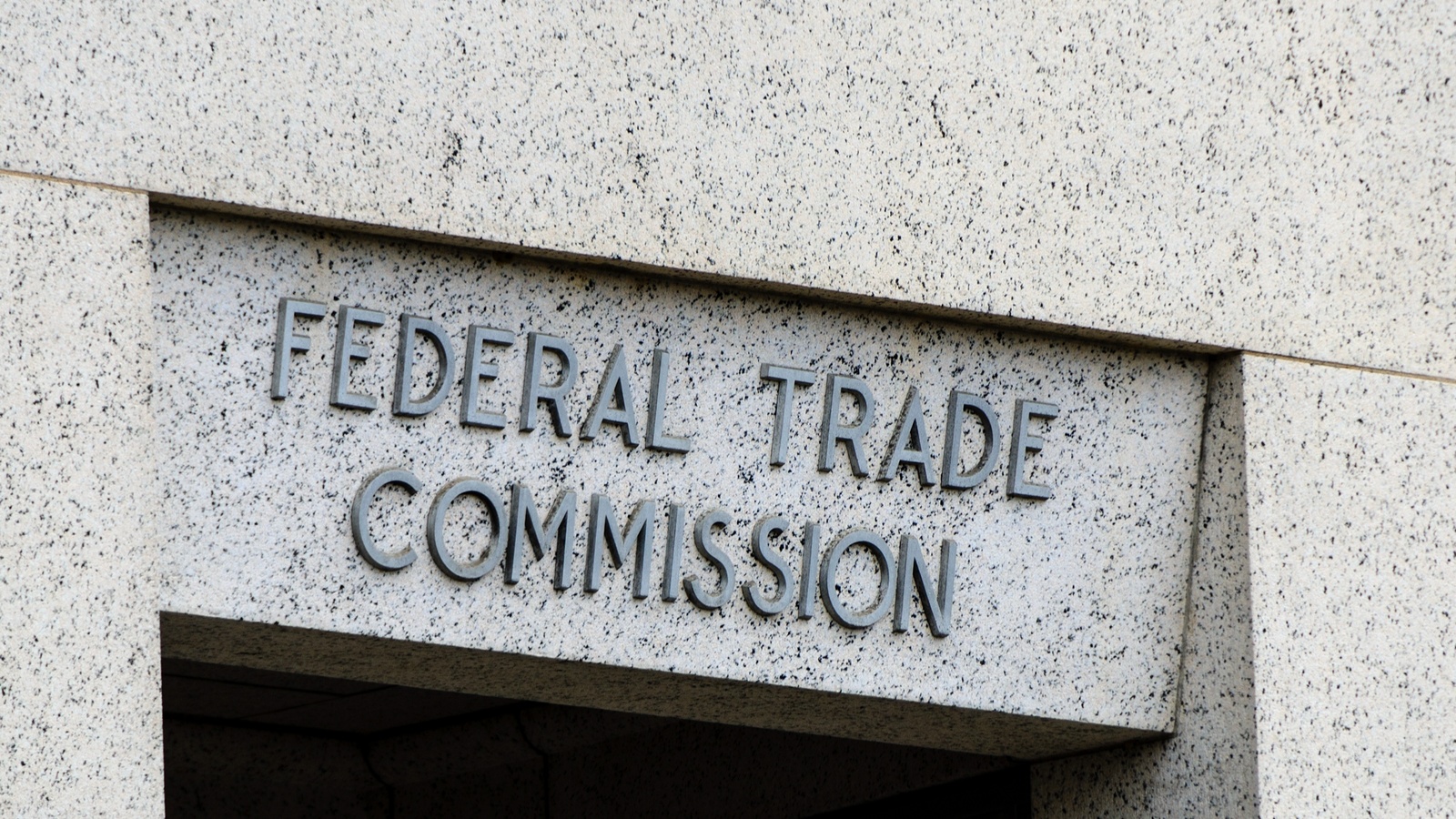
The NAM is opposing the Federal Trade Commission’s proposed ban on all noncompete agreements, pushing back on a move that would damage the manufacturing industry. We talked to NAM Vice President of Infrastructure, Innovation and Human Resources Policy Robyn Boerstling about the NAM’s reasoning on this crucial issue.
What noncompetes do: As Boerstling put it, manufacturers use noncompete agreements only for select workers handling their most sensitive information.
- That information might include the details of the company’s most sophisticated processes and strategies, which cannot be allowed to fall into competitors’ hands.
- Not only do these employees handle the keys to a company’s success, Boerstling added, but they are the recipients of significant investments in time, compensation and training.
The potential damage: Banning noncompetes would force companies to revamp their human capital operations completely, argued Boerstling.
- It would mean that trade secrets or other essential information might walk out the door and be exploited not only by competitors, but also by foreign adversaries.
- Manufacturers would be forced to put in place burdensome controls or silo parts of their operations from each other, which would result in less training for employees and less efficiency across various divisions.
- In a highly competitive industry—not to mention during significant economic uncertainty—that is a high price to pay, Boerstling pointed out.
Why not something else? Noncompete agreements are a critical tool for protecting manufacturers’ intellectual property, and alternatives like nondisclosure agreements are not sufficient, said Boerstling.
- In fact, in IP cases, courts look specifically at whether a company has employed noncompete agreements in deciding whether that company has taken reasonable steps to protect their property and processes.
FTC in the wrong: The FTC is wrong to put forth this blanket ban on a number of counts, said Boerstling.
- First, the rulemaking concerns an issue of “vast economic and political significance” that is beyond the scope of the FTC Act.
- Second, the regulation of these agreements has been handled successfully at the state level, a situation that works well for manufacturers.
- Third, the FTC is being too simplistic by striking at all noncompetes at once. Complex technical industries require noncompetes for good reason, as their sophisticated IP is the core of their business.
- Last, this ban is set to be retroactive, which is sure to cause confusion for both employers and employees.
What the NAM wants: The NAM objects to the FTC’s proposal in its current form and asks that it be withdrawn until the FTC can propose a more tailored approach that allows for sensible exemptions, said Boerstling.
